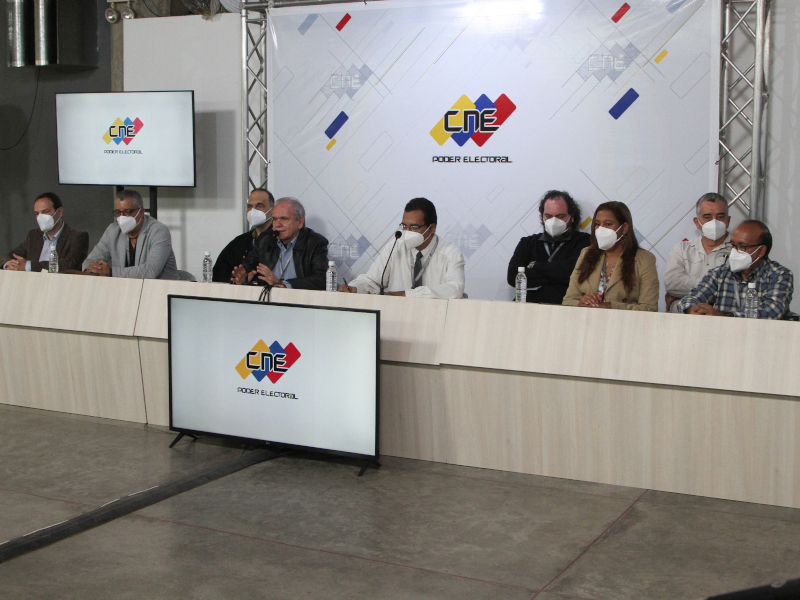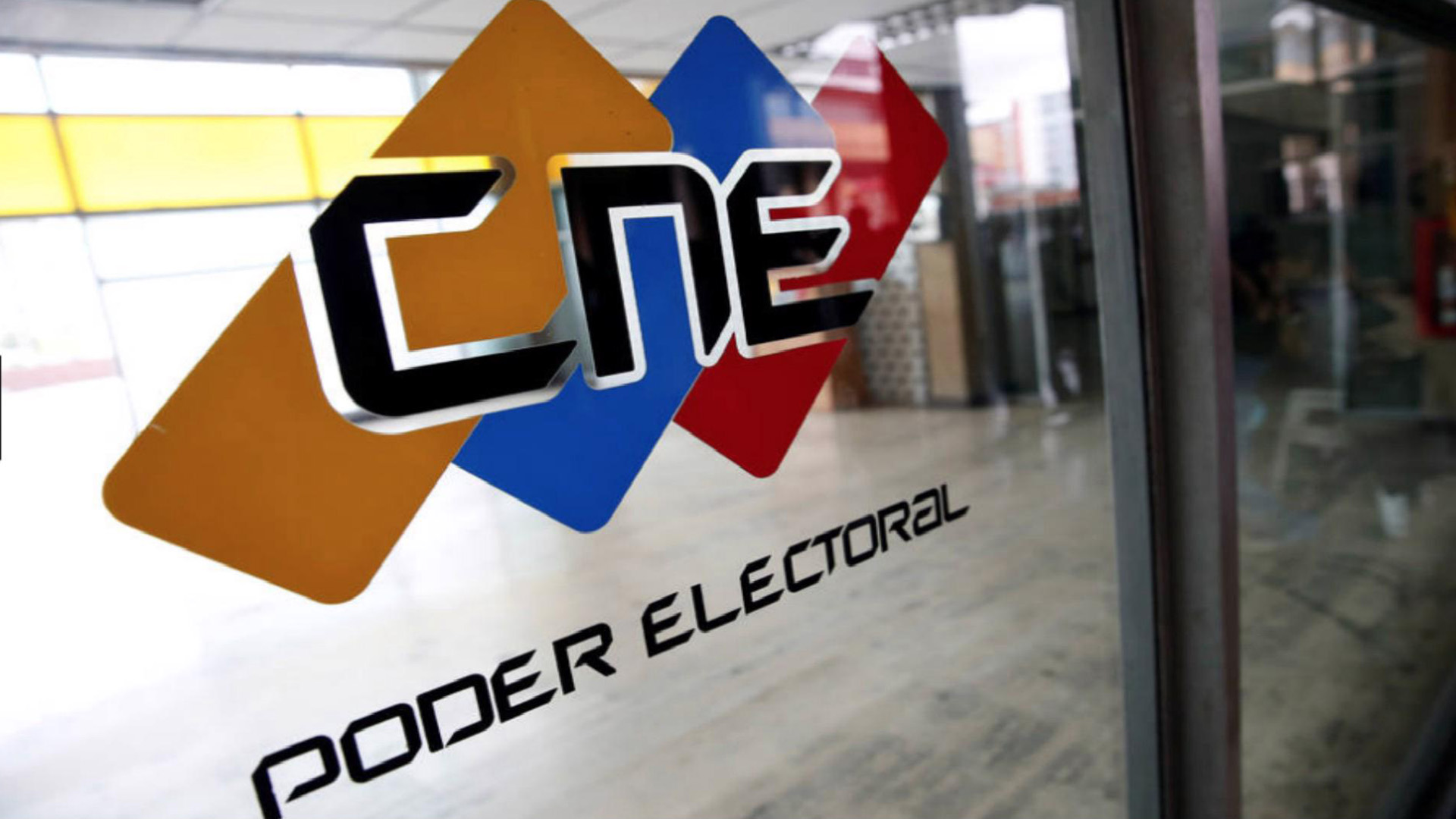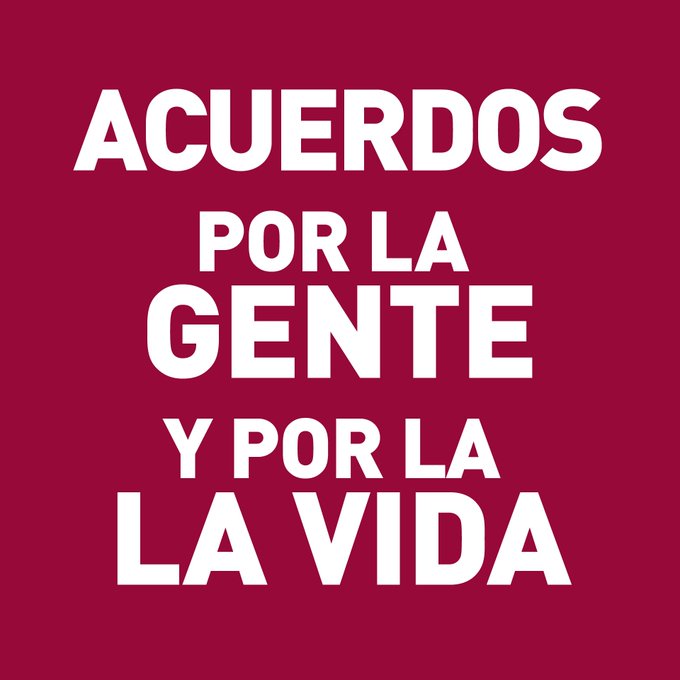Nicolás Maduro’s decision to pardon 110 people who were behind bars or persecuted, in “the interest of promoting national reconciliation and the search for peace”, has caused a political earthquake whose repercussions continue.
Among the beneficiaries of the measure announced on August 31 by the Minister of Communication, Jorge Rodríguez, are the deputies of the National Assembly Freddy Guevara, Miguel Pizarro, Carlos Paparoni, Henry Ramos Allup, Edgar Zambrano, Luis Florido, Juan Pablo Guanipa, Gilber Caro, and Renzo Prieto.
Likewise, Roberto Marrero, head of the office of the President of Parliament and interim President of the Republic, deputy Juan Guaidó; the director of the news site Punto de Corte, Nicmer Evans; union leader Rubén González, and Antonia Turbay, accused of being involved in the escape of commissioner Iván Simonovis in 2019, were all pardoned.
The decision of the Maduro government unleashed a wave of debates, including one in the legal and academic world concerning the definition of it as a pardon. The reason? The majority of the beneficiaries had not been tried. For this reason, Acceso a la Justicia considers it relevant to review the Venezuelan legal framework, to specify some key points when it comes to better understanding the subject.
1. What is a pardon?
A pardon is an act of the Government, of a discretionary nature, carried out in direct and immediate execution of the provisions in the Constitution by the President of the Republic in his capacity as Head of State, and in the exercise of the powers contemplated in Article 236.19 of the tex. Generally, this type of measure is granted for humanitarian reasons, although it does not stipulate the reasons or moment to grant it, because it is an act of a discretionary nature.
2. What has the Supreme Tribunal of Justice (TSJ) said about the pardon?
The Constitutional Chamber, in ruling number 1368 of August 13, 2008, indicated that the pardon is a mechanism:
“Which contributes to the mitigation -based on equity-, of the excessive harshness of the criminal law that the judges have not been able to avoid, thus guaranteeing a better process of individualization of the sentence; likewise, the pardon also manifests its usefulness by serving as a mechanism for repairing judicial errors that cannot be repaired through the remedies provided for in the legal system; and last but not least, there is the role of this institution as an instrument that facilitates the re-socialization of the accused or convicted person ”.
3. Can the Judiciary exercise any control over a pardon?
Yes. In the case of a request (appeal or demand), it can examine the formal aspects to certify the validity of the decree that contains the pardon. The TSJ could, for example, make sure that the resolution has been issued by the President of the Republic and that it is endorsed by the vice president and the corresponding minister.
4. Is there any constitutional limitation to grant a pardon?
Yes. Article 29 of the Constitution prohibits the granting of pardons to persons accused of committing “crimes against humanity, serious violations of human rights, and war crimes.” Upon a request, the Constitutional Chamber of the TSJ must ensure that this provision is respected, and citizens who consider that it has been violated can denounce a pardon before the courts.
5. Can the circumstances, motives, or reasons that lead the President of the Republic to issue the pardon be controlled by law?
No. Because it is a prerogative of political office, and it is beyond the scope of jurisdictional control, which in this case would be exercised by the TSJ through the Constitutional Chamber. However, as a decision subject to the constitutional order, it cannot be exercised arbitrarily and unreasonably, as would be the case of trying to pardon serious human rights violations.
6. For the beneficiaries of the measure, does this imply the recognition of an infraction?
No. The pardon is a benefit that in no case imposes on the recipient the duty to recognize the commission of a crime.
7. Is it possible to pardon a person when he or she has not even been convicted?
Yes. Article 29 of the Organic Code of Criminal Procedure (COPP) indicates that the pardon operates in any stage and degree of the process or the execution of a sentence, which is why it is not necessary to have a conviction.
8. What are the effects of granting a pardon?
The immediate termination of the criminal action or sentence and the cessation of any measure of personal coercion. In short, the pardon stops the execution of the sentence, if applicable, and produces the immediate release of the beneficiaries, following the provisions of article 104, 29, and 480 of the Criminal. Likewise, article 107 of the Code establishes that the pardon does not give the right to the restitution “of the arms or instruments confiscated, nor of the amounts paid as a fine or for procedural costs, but the amounts still owed by the indicted will be dropped”.
9. What is the difference between a pardon and a dismissal of the case?
The pardon is issued by the President of the Republic, and the dismissal is a measure issued by a judge, according to the grounds contemplated in article 300 of the COPP. A dismissal can also be issued after a request from the Public Ministry (article 302 COPP) or the accused himself, under article 127.11 of the Code.
10. What is the legal nature of the act that declares the dismissal of the case?
According to ruling no. 187 of the Criminal Repeal Chamber of July 2, 2018, the decision to dismiss the case is not a final judgment, but a final interlocutory order which ends the procedure. Also, it has res judicata authority, preventing the person from facing the court again for the same reasons (Article 301 of the COPP).
11. What, then, is an amnesty?
An Amnesty is a law issued by the National Assembly, following the provisions of article 187.5 of the Constitution, by which a criminal case is extinguished. However, this figure does not refer to people but facts; On the other hand, the pardon is directed to specific people. An Amnesty is also a concession, but it is focused on the crimes committed rather than the perpetrator.
The amnesty, according to article 104 of the Penal Code, extinguishes the criminal action and stops the execution of the sentence and all the criminal consequences. Likewise, this benefit can be given at any time during the process, even after a conviction has been passed. However, it should be clarified that although both pardon and amnesty extinguish the criminal action, the civil responsibility arising from it does not cease, according to article 113 of the Penal Code. In other words, both measures eliminate criminal consequences, but not those of a civil nature.
How does it affect Venezuelans?
The context surrounding this decision, a few months before the legislative elections that the opposition and part of the international community do not recognize, seems to indicate that the Nicolás Maduro administration is trying to mend its image and show itself less authoritarian than in the past. The objective? Obtaining the endorsement of the electoral process and possibly a lifting of the diplomatic and financial siege to which it is subjected for its attacks on civil freedoms and Parliament.
In a country where people are detained and persecuted for their political ideas, and a pardon measure is intended to be showcased as an achievement, the move actually tells us that just as the decision to apprehend the pardoned was political, so was their liberation, and in neither case did justice intervene.
Translated by: José Rafael Medina




